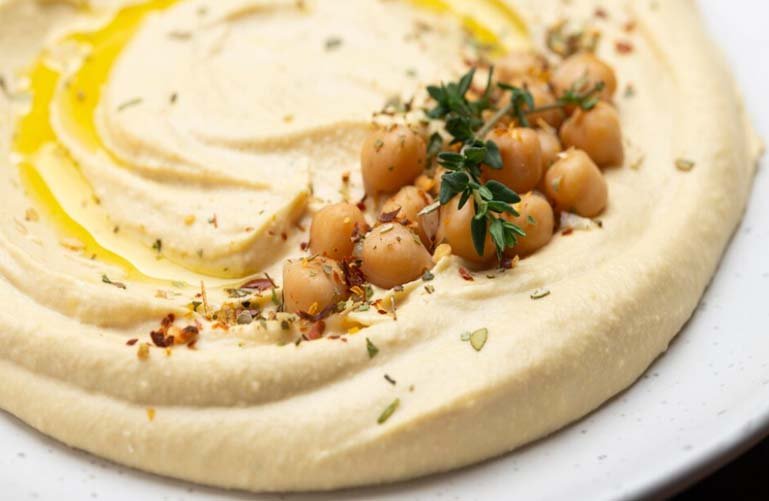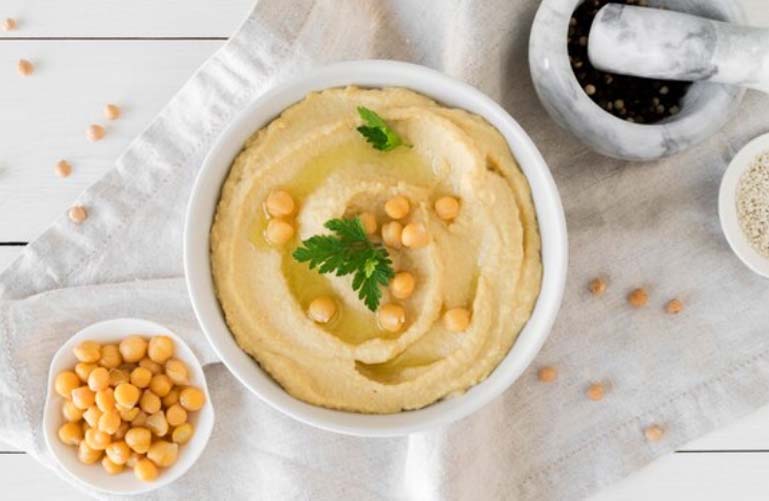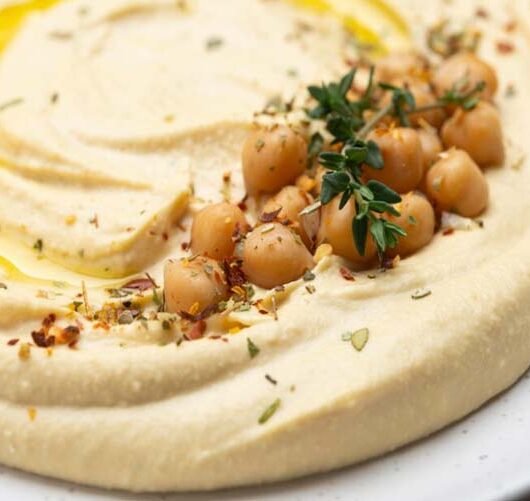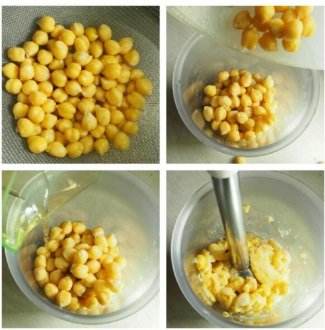A culinary creation from the Middle Eastern region, hummus has gained popularity around the world thanks to its unique flavor and versatility in cooking. This recipe takes you on a sensory journey where soft and creamy cooked chickpeas mix with the rich flavor of tahini, a silky and aromatic sesame paste. The fresh touch of freshly squeezed lemon juice adds a citrus brightness, while minced garlic adds subtle heat and complexity.
Combining these ingredients in a food processor creates an exquisitely smooth and creamy paste, with earthy notes from ground cumin and a pinch of sea salt that enhances each flavor. The perfect consistency is achieved with the careful addition of extra virgin olive oil, which adds a silky richness and glossy finish.
Once prepared, the hummus is elegantly presented on a serving plate, decorated with a touch of smoked paprika for additional depth of flavor and a drizzle of olive oil for a luxurious texture. Fresh parsley leaves, with their vibrant green color, add a touch of freshness and sophistication to the dish.
This homemade hummus is much more than a simple recipe; is a culinary experience that transports you to the bustling markets of the Middle East and invites you to enjoy its rich gastronomic heritage from the comfort of your home. Whether you serve it as an elegant appetizer at a gathering with friends or as a healthy snack to enjoy alone, this hummus will delight your senses and leave you wanting more.

Hummus and health benefits
Hummus, made primarily from chickpeas and tahini (sesame paste), is a nutritious food that offers a number of health benefits. Here are some of them:
- High protein content: Chickpeas are an excellent source of plant protein, making hummus an ideal option for vegetarians and vegans. Protein is essential for cell repair and growth, as well as maintaining muscle mass.
- Rich in fiber: Both chickpeas and tahini are rich in dietary fiber, which helps promote healthy digestion and prevent constipation. A diet rich in fiber can also help reduce the risk of heart disease and control blood sugar levels.
- Source of healthy fats: The olive oil used in the hummus recipe provides heart-healthy monounsaturated fats, which can help reduce LDL (bad) cholesterol and promote overall cardiovascular health.
- Rich in vitamins and minerals: Hummus is a good source of several vitamins and minerals, including iron, calcium, magnesium, phosphorus, zinc, and B vitamins, such as folic acid and vitamin B6.
- Antioxidant properties: Chickpeas and olive oil are rich in antioxidants, which help fight oxidative stress in the body and may reduce the risk of chronic diseases such as cancer and heart disease.
- Heart Health Benefits: Various components of hummus, including chickpeas, olive oil, and garlic, have been associated with reducing the risk of heart disease by improving cholesterol levels, blood pressure, and arterial health.
- Can help in weight loss: Hummus is relatively low in calories and can be a tasty and satisfying option for those who are trying to lose weight. The combination of protein and fiber can also help keep you feeling full longer.
In summary, hummus is a delicious and nutritious food that can be beneficial for health in many aspects, as long as it is consumed as part of a balanced and varied diet.
Maybe you might like: meat sweat
Image credits: Freepiks











